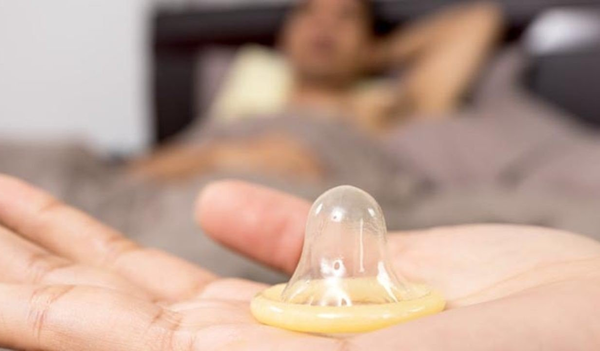For numerous individuals, the sensation of intimacy without a condom amplifies the overall experience. Additionally, some might have latex sensitivities, rendering condom usage infeasible. In this article, we delve into the potential risks and factors you should be cognizant of if considering condom-less intimacy.
What are the risks of having sex without a condom?
Engaging in sexual activity without a condom comes with inherent risks, mainly:
Sexually Transmitted Infections
Condoms stand as the primary barrier against the transmission of sexually transmitted infections during oral, anal, or vaginal intercourse. While they might not offer protection against all STDs, they substantially reduce the risk of transmitting most, such as chlamydia, gonorrhoea, HIV, and syphilis. Opting for intimacy without a condom significantly elevates the chances of contracting a sexually transmitted infection.
Unwanted Pregnancy
Engaging in penetrative vaginal intercourse without a condom heightens the risk of an unplanned pregnancy, especially if it’s the sole contraceptive method in play. The risk further intensifies if one forgets to take the contraceptive pill on two consecutive days prior to the sexual encounter. Hence, if you aren’t using any contraceptive measures, it’s best to use a condom such as Durex and Trojan to weaken the chances of an unwanted pregnancy.
Considerations before having sex without a condom?
Engaging in intimate relations without a condom might be something both you and your partner are contemplating. Open dialogue and mutual agreement are essential in this matter. Here are some crucial points to mull over before making this decision.
Make sure that you’ve both been tested
Choosing to engage in sexual activity without a condom requires due diligence. Both you and your partner should undergo an STD test beforehand. This is the most reliable method to confirm neither of you is carrying an STD, ensuring the health and safety of both parties. Transparency and honesty regarding your sexual health are vital from the beginning of any relationship. This can prevent potential complications or misunderstandings later on.
In the interest of maximum protection, it’s beneficial to undergo a comprehensive screening. This should include tests for common STDs such as chlamydia, gonorrhoea, syphilis, HIV, herpes, and trichomonas.
One night stands
Always use a condom when engaging in sexual activity with someone you’re not familiar with. Without a deeper understanding of their medical history, there’s no way to ascertain their recent STD test results. In casual encounters, there’s a chance that the person might not be entirely forthcoming about their health status.
Alternative contraception
Before opting for condom-less intimacy, it’s crucial to have another contraceptive method in place to prevent unintended pregnancies. There’s a wide range of contraceptive alternatives available, so a thorough discussion about the most suitable one for you is essential. Consider visiting an NHS contraception or sexual health clinic to explore and understand these options in depth.
Don’t feel pressured
Choosing to engage in sexual activities without a condom should be a mutual decision that you and your partner approach with care and consideration. Open communication is essential, and both parties should feel ready and comfortable with the decision. It’s vital to ensure you never feel pressured into such choices. Taking the time to weigh the aforementioned factors can prevent potential regrets or concerns in the future.
I’ve had sex without a condom, what should I do?
If you’ve engaged in unprotected intercourse, whether by choice or not, it’s essential to address the situation promptly from a sexual health perspective. For women, certain instances might involve situations where they didn’t have complete autonomy over the decision. The key is to act immediately after the incident and, while it’s natural to have concerns, try to approach the situation with a clear mind and seek appropriate guidance.
STDs
Many sexually transmitted infections can be discreet, often showing no visible or easily identifiable symptoms. Engaging in unprotected sex always carries the risk of STDs, especially if neither party has been tested since their last intimate encounter.
If you’ve had unprotected sex, it’s highly recommended to undergo an STD test. Most tests can provide accurate results around 14 days after potential exposure. If detected early, the majority of STDs can be treated effectively. Delaying treatment can have significant consequences on one’s long-term reproductive health.
For more insights on the appropriate time frame for STD testing after sexual activity, refer to our recent article: “How Long After Sex Should You Test For STDs?”
For those specifically concerned about HIV exposure, it’s crucial to consult a sexual health clinic immediately. Professionals there can assess the risk and might offer PEP (post-exposure prophylaxis) which can effectively prevent HIV if taken within 72 hours of exposure.
Pregnancy
Having sex without a condom, while not utilizing other contraceptive methods, raises the risk of an unintended pregnancy. Even if you are on birth control, the likelihood of pregnancy increases if you’ve missed doses or didn’t adhere to the prescribed schedule in the days leading up to the unprotected activity.
If there’s concern about potential pregnancy after unprotected intercourse, it’s crucial to consider emergency contraception promptly. Options for emergency contraception include the emergency contraceptive pill, often referred to as the “morning-after pill”. Its efficacy is highest when taken as soon as possible, within 12 hours to 5 days post-intercourse.
Emergency contraception can be readily obtained from various sources, including pharmacies, general practitioner offices, NHS walk-in centers, and many NHS sexual health clinics. Depending on individual circumstances, they may be available for free through the NHS or require a fee.
Conclusion
While the pleasures of intimacy can sometimes lead to decisions made in the heat of the moment, it’s essential to prioritize one’s health and well-being. Unprotected sex poses risks that have far-reaching implications, from STDs to unintended pregnancies. Being informed and proactive in such situations, from understanding available contraceptive methods to knowing where to seek emergency solutions, ensures safer experiences. Always prioritize communication with your partner and take informed actions, placing health and safety at the forefront of any intimate encounter.




